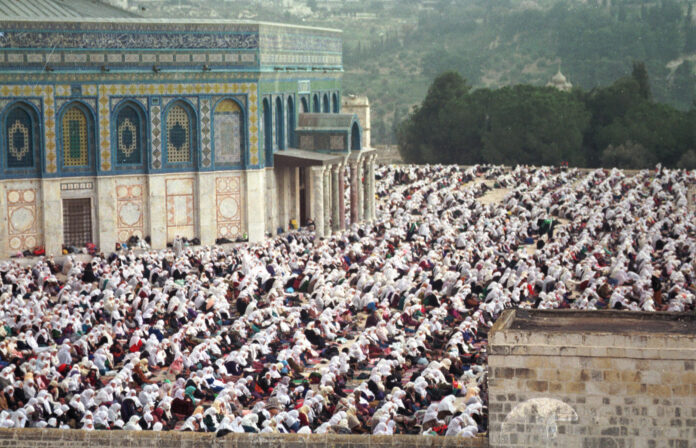As the crescent moon gracefully signals the advent of Ramadan, Muslims worldwide embark on a journey of spiritual rejuvenation, communal solidarity, and self-reflection. Yet, as this sacred month nears its closure, a crescendo of devotion and anticipation envelops the hearts of believers. What rituals accompany the last ten nights of Ramadan? Let’s delve into the captivating tapestry of traditions, prayers, and supplications that define this sacred period!
The Essence of the Last Ten Nights

In the Islamic calendar, the last ten nights of Ramadan hold immense significance. These nights are believed to house Laylat al-Qadr, the Night of Decree, which is described in the Quran as “better than a thousand months” (Surah Al-Qadr, 97:3). The exact date of Laylat al-Qadr remains veiled, but it is commonly observed on odd-numbered nights within the last ten nights of Ramadan.
Seeking Laylat al-Qadr: The Night of Decree
- Muslims intensify their worship during the last ten nights, fervently seeking Laylat al-Qadr.
- The night is believed to be a time of profound mercy, forgiveness, and divine blessings.
Tahajjud Prayers: Embracing the Night Vigil
- Devout Muslims engage in Tahajjud prayers during the last ten nights, seeking closeness to Allah.
- Tahajjud prayers are performed after the obligatory night prayer (Isha) and before the pre-dawn meal (Suhoor).
The Intensity of Worship

During the last ten nights of Ramadan, mosques buzz with fervor as worshippers immerse themselves in prayers, recitation of the Quran, and supplications. The air is thick with anticipation and devotion, as believers seek to maximize their spiritual gains before the month bids farewell.
Itikaf: Spiritual Retreat in the Mosque
- Many devout Muslims observe Itikaf during the last ten nights, retreating to the mosque for spiritual seclusion.
- Itikaf involves dedicating oneself to worship, reflection, and remembrance of Allah while refraining from worldly distractions.
Recitation of the Quran: Reveling in Divine Guidance
- Muslims engage in increased recitation of the Quran during the last ten nights, striving to complete its recitation at least once.
- The Quran holds special significance during Ramadan, as it was revealed during this blessed month.
Tasbih: Counting Blessings Through Dhikr
- Dhikr, or the remembrance of Allah, takes on heightened importance during the last ten nights.
- Muslims engage in Tasbih, the repetitive utterance of praises and glorifications, as a means of drawing closer to Allah.
Generosity and Charity

Ramadan is not only a time of personal spiritual growth but also a period of immense generosity and compassion towards others. The last ten nights witness a surge in charitable deeds and acts of kindness, reflecting the true essence of Islamic teachings.
Zakat al-Fitr: Obligatory Charity
- Muslims diligently fulfill their obligation of Zakat al-Fitr during the last ten nights, providing assistance to those in need.
- Zakat al-Fitr is obligatory upon every Muslim who possesses the means to do so and serves as a means of purifying one’s wealth.
Sadaqah: Acts of Voluntary Charity
- In addition to Zakat al-Fitr, Muslims engage in voluntary acts of charity (Sadaqah) during the last ten nights.
- Sadaqah encompasses a wide range of charitable deeds, including feeding the hungry, providing shelter to the homeless, and aiding the less fortunate.
FAQs
Q: Is Laylat al-Qadr celebrated on a specific date during the last ten nights of Ramadan?
A: Laylat al-Qadr is believed to occur on one of the odd-numbered nights within the last ten nights of Ramadan, although the exact date remains unknown.
Q: What is the significance of Itikaf during the last ten nights of Ramadan?
A: Itikaf allows Muslims to detach from worldly distractions and focus solely on worship, reflection, and spiritual growth in the serene ambiance of the mosque.
Q: How can one maximize the spiritual benefits of the last ten nights of Ramadan?
A: Engage in increased prayers, recitation of the Quran, supplications, and acts of charity. Strive to seek Laylat al-Qadr with sincerity and devotion.
Conclusion
The last ten nights of Ramadan encapsulate a tapestry of spiritual fervor, devotion, and communal solidarity. From seeking Laylat al-Qadr to engaging in intense worship and acts of charity, Muslims worldwide embark on a journey of self-discovery and spiritual enlightenment. As we bid farewell to this sacred month, let us carry forward the lessons learned and the blessings received, striving to embody the spirit of Ramadan throughout the year. What rituals accompany the last ten nights of Ramadan? They are a testament to the unwavering faith and devotion of believers, illuminating the path towards spiritual fulfillment and divine proximity.


